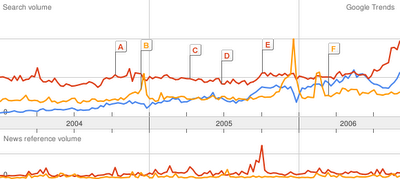6. Oodles of Moodle
In academia land, one of the more popular forms of open-source is the system known as Moodle. London, UK-based The Open University is currently in the midst of implementing Moodle to the end result of “the largest use of Moodle in the world,” namely a complete student online environment. Moodle is currently employed in some aspects of Open’s distance-learning program and the “comprehensive online student learning environment” promises to be fully operational by February.
7. Moodle at your service
Meanwhile, the University of Illinois at Urbana-Champaign College of Education has now in place a full-on “Moodle Service”, which acts as supplement to course material available to College of Education faculty and students and a resource to other university workgroups, workshop participants and communities.
Packt (the publisher of the bestselling Moodle book... and my employer so buy it!) gets a mention at number 20, for its open source award program:
20. Packt’s magic five
Industry-related publishing house Packt recently announced its nominees for the Packt Open Source Content Management System Award. The awards were designed to “encourage, support, recognize and reward an Open Source Content Management System that has been selected by a panel of judges and visitors. The nominees are: Drupal; e107; Joomla!; Plone; and Xoops.
From CRMchump - 50 Open Source success stories in Business, Education, and Government.


